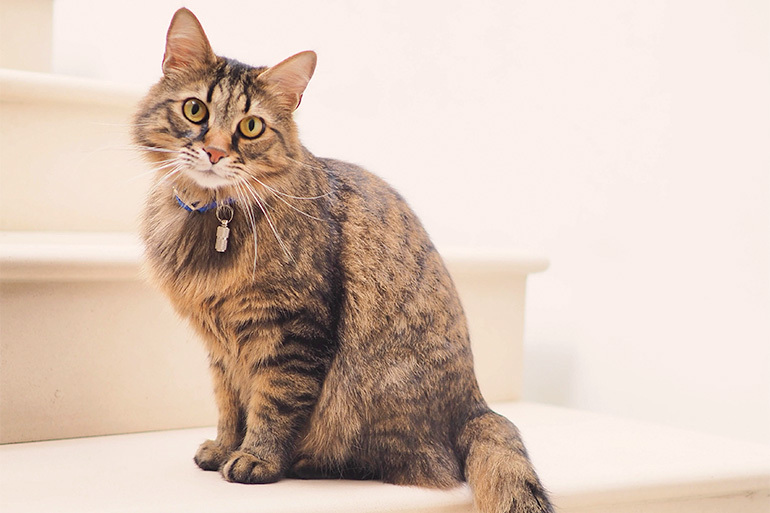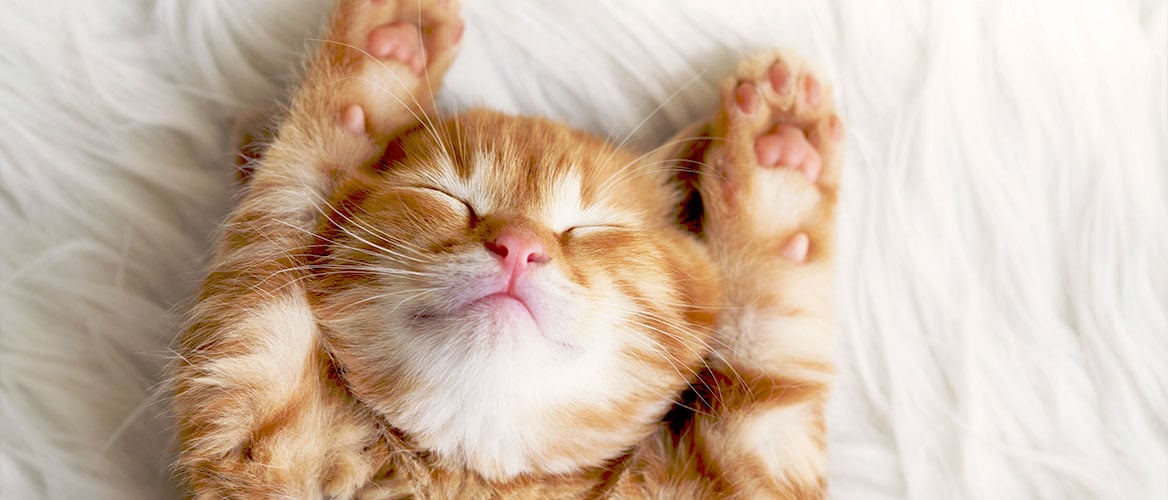November 7, 2023
December 7, 2022
If you live in a city, your decision to keep your cat indoors may primarily be due to lack of outside space, but people living in the suburbs or countryside sometimes also choose to keep their cat inside. Having an indoor cat is safer than letting them go outside as they won’t encounter the perils of the street (cars, noise and lights, getting lost or stolen) or nature (other animals, bad weather, dangerous terrain). For cats with a disability or medical problem in particular, indoor living can be a better option. It can also keep them away from common diseases that they can pick up outdoors like fleas and flus.
In general, indoor cats tend to be healthier, which saves on costly veterinary bills. However, indoor cats can still get sick and have health problems. So if you’re wondering, do indoor cats need vaccines?, what illnesses might my indoor cat pick up?, or what healthcare coverages should I consider for my cat?, then this article is for you!

Indoor cat problems and diseases
Cats can encounter medical issues at every stage of life, due to lifestyle, genetics, or exposure to illness. Unfortunately, even indoor cats can get sick. Continue reading to learn about the most common indoor cat problems:
- Weight gain and diabetes: With limited indoor space and easier access to food, indoor cats tend to be more inactive than outdoor cats. Leading a sedentary lifestyle can lead to indoor cats that are overweight and at greater risk of developing diabetes.
- Feline lower urinary tract disease: This disease is common in middle-aged, indoor cats. An inactive lifestyle, being overweight, using a litter box, and eating dry food may contribute.
- Behavioral issues: Indoor cats can become bored, stressed, or even have separation anxiety when left alone. Keeping your cat active and engaged can help prevent these issues.
- Indoor hazards: Toxic house plants, poison, or toxic cleaning products are all hazards for curious indoor kitties. Make sure all cabinets with hazardous chemicals are kept locked or secured.
Tips for keeping indoor cats
Outdoor cats are constantly engaged with the wonders of the outside world - they have every opportunity to climb, roam, and explore. To simulate that engagement indoors can be tough, so as an indoor cat owner, these tips and tricks will help keep your kitty happy and healthy:
- If possible, make your cat an indoor cat from the beginning. According to paws.org, most cats who grow up inside show no inclination to leave the safety of home. The transition from outside to inside can be distressing for cats, and they may be constantly meowing at windows and trying to escape out open doors.
- Have a litter box, keep it in a quiet place, and clean it regularly to prevent disease.
- Access to enough different spaces and areas, ideally several different rooms and different low and elevated spaces. Cats also love spots where they can enjoy the sun and look outside.
- Scratching posts to strengthen muscles, sharpen claws, and play.
- Keep them active and interacting - toys, guests, other animal companions.
- Cats enjoy plants like wheat or oat grass to chew on.
- Screen in all your windows so that you can enjoy the fresh air while preventing your cat from sneaking out.
- Build an outside enclosure from a window or terrace.
- Consider leash-training your cat so that you can go on walks together. All you need is a harness and a leash and some training. Make sure they wear a collar wish an ID. However, if leash training is ideally done from a young age, otherwise the cat can suffer stress and anxiety when exposed to a new, dangerous environment.
- Consider microchipping your cat in case they escape. That way, they can be easily identified if found. Although in Spain it is mandatory to microchip all dogs, the same does not happen with cats; it varies according to the autonomous community. At the moment, it is mandatory to microchip cats in Andalucia, Cantabria, Galicia, Madrid, and Catalonia. Spain is actually considering making a pet ID mandatory.
Do indoor cats need vaccines?
You’re probably wondering if pet insurance is even worth it for an indoor cat…Do indoor cats need vaccines? What’s the worst that could happen? The answer is: while indoor pets tend to be safer from the perils and problems of the outside world, they can still be exposed to harmful bacteria that gets them sick or encounter other health problems.
Below are a few situations that demonstrate why it makes sense to vaccinate your cat:
- When you travel, your cat may spend time at a boarding facility. Or they may go to a groomer. These are places where other animals visit, and they can spread diseases.
- If your cat gets outside, just a quick visit to the street or lawn can be enough to expose them to harmful bacteria.
- The potential cost savings from getting them vaccinated early, outweigh any later, more expensive costs.
Cat vaccines
Vaccinations for cats can start from 6-8 weeks of age and continue up until about 16 weeks old. Adult cats may get booster shots every few years depending on your veterinarian’s recommendation. Keep reading to discover typical cat vaccines:
- Rabies - A fatal disease most common in outdoor cats.
- Feline Viral Rhinotracheitis, Calicivirus and Panleukopenia (FVRCP) - Protects against feline viral rhinotracheitis, calicivirus and panleukopenia.
- Feline herpesvirus type I - Causes upper respiratory infections. Can spread through sharing of litter trays or food bowls, inhalation of sneeze droplets or direct contact. Can lead to eye problems.
- Feline immunodeficiency virus (FIV) and Feline Leukemia (Felv) - Protects against viral infections that are transmitted via close contact (mostly recommended for outdoor cats).
- Bordetella - This bacteria causes upper respiratory infections that are highly contagious. This vaccine may be recommended by your vet if you are taking your cat to a groomer or boarding kennel.
- Chlamydophila felis - Chlamydia is a bacterial infection that causes severe conjunctivitis.
Some vaccines may cause a mild reaction, but if your cat experiences symptoms including vomiting, fever, diarrhea, or hives you need to consult your veterinarian for an assessment.

Caser pet coverage
Caser pet insurance in Spain includes coverages for vaccinations, including an annual rabies vaccine. You’ll also have access to check-ups and different types of consultations: veterinary consultations, 24-hour emergency consultations, and specialist consultations.
Liability protection again damage that your pet may cause to a third party and special services like telephone veterinary assistance and pet services guidance (to gain information and locate businesses/events related to your pet). To find out more about Caser insurance coverage for your cat, visit the website.
.png?width=344&height=67&name=logo_caser%20(2).png)









Let Us Know What You Thought about this Post.
Put your Comment Below.